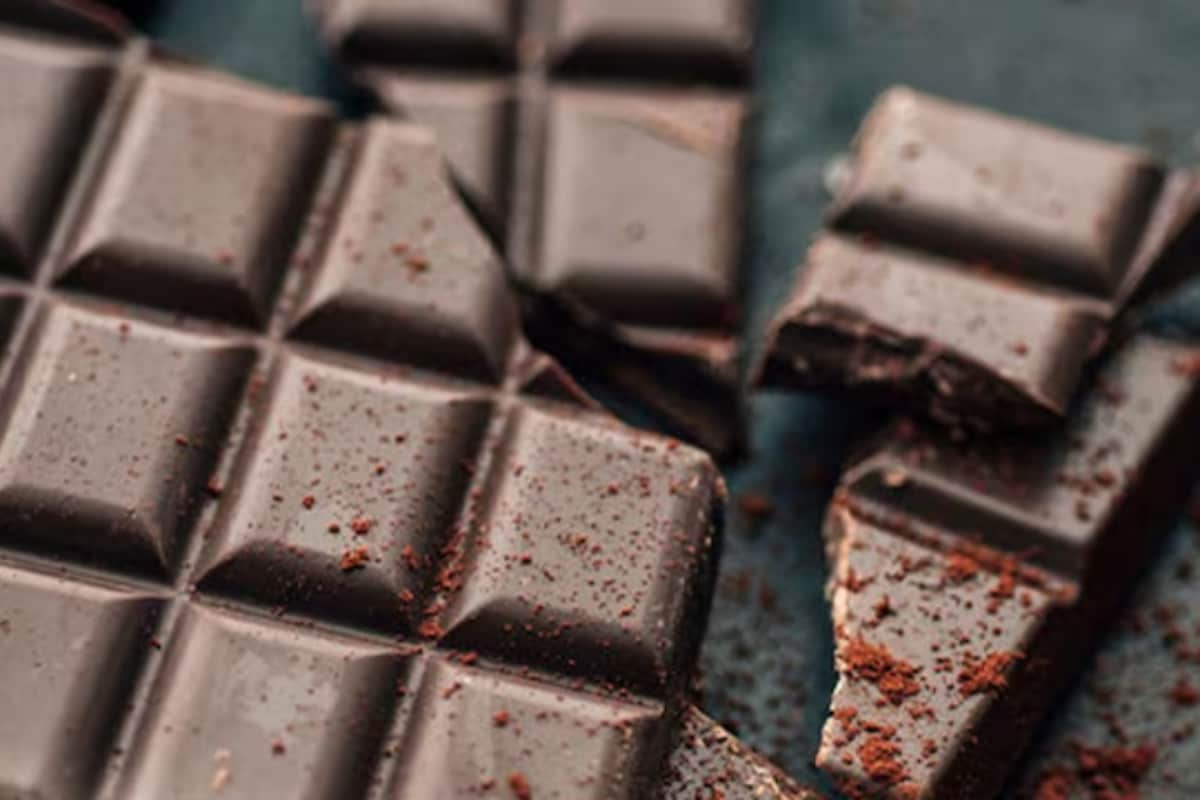As more and more people want to try the pistachio-filled chocolate bar, demand for the nut has skyrocketed, resulting in a price increase and straining the supply chain. Heard of pistachio-filled chocolate bars? Yes, the same ones which are also dubbed as the viral Dubai chocolate. The sweet treat which originated in Dubai has now become a global sensation, all thanks to social media.
Back in 2021, a small Emirati chocolate brand called FIX created a unique dessert: a milk chocolate bar filled with creamy pistachio, inspired by the popular Middle Eastern sweet dish, knafeh. The company even named the rich, gooey and indulgent chocolate bar Can’t Get Knafeh of It. Initially, it was only available in the UAE.

But things changed in December 2023. A TikTok video showing someone breaking the chocolate bar into two halves, revealing the creamy pistachio filling, went viral and it garnered around 120 million views. Suddenly, everyone wanted a taste of the viral Dubai chocolate.
TikTokers around the world began creating reaction videos, some crafting homemade versions and searching for similar desserts, which turned this local treat into a global frenzy. However, behind the high demand for the viral Dubai chocolate lies a more dire situation. As reported by Financial Times, the pistachio supply chain is cracking under pressure.
As more and more people want to try the pistachio-filled chocolate bar, demand for the nut has skyrocketed, resulting in a price increase from $7.65 to $10.30 (approximately Rs 654 to Rs 881) per pound within a year.
To add to the woes, the US, which is the top exporter of pistachio, had a below-average harvest in 2024. As reported, most of the crop was sold as whole nuts in their shells, which are not ideal for confectionery production. On the other hand, Iran, the second-largest global producer of pistachios, has boosted its exports to keep up with global demand for the nut.
In the six months leading up to March 2025, Iran increased its pistachio exports to the UAE by 40 per cent compared to the previous year. The exports from Iran not only helped the UAE meet the increasing demand for pistachios, but also fuelled the demand in the international market for imitations of the viral chocolate bar. And not just people, but many renowned chocolate brands, such as Lindt, Läderach and Prestat, have jumped on the bandwagon.
All these companies have launched their own pistachio-filled treats. But even they are struggling to keep up. The increase in demand has also led some sellers to limit the number of bars one can purchase at a time, while some have also started waitlists.
Many such social media trends fade away over time, but the viral Dubai chocolate frenzy appears to be lasting longer than expected. Its popularity has not only inspired people to create their own versions, but has also stressed the supply chain, which was already in a dire situation, given that the farming of the nut depended heavily on climate change and the geopolitical tensions between the US and Iran..
Top

How A Viral Chocolate Bar From Dubai Has Impacted Pistachio Supplies In The World

As more and more people want to try the pistachio-filled chocolate bar, demand for the nut has skyrocketed, resulting in a price increase and straining the supply chain.











